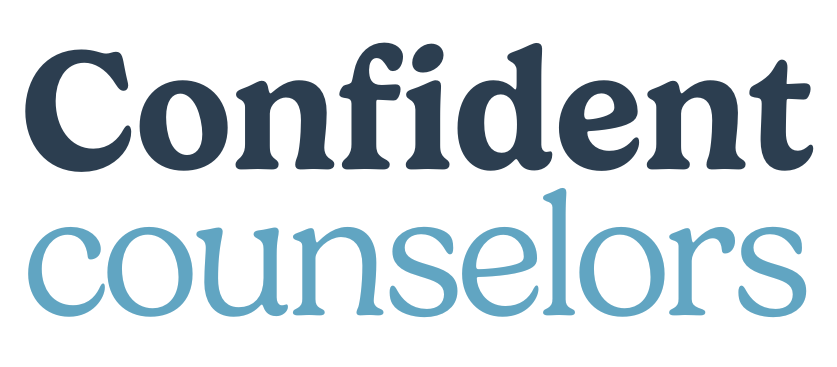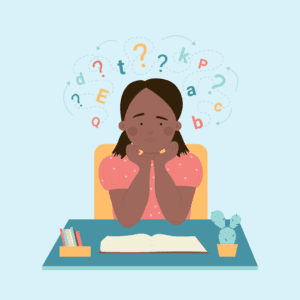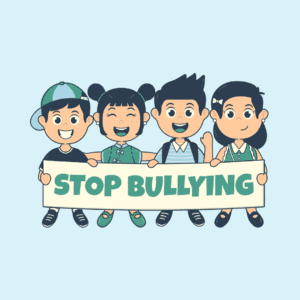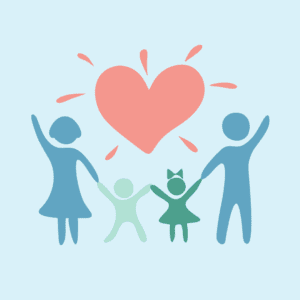School counselors use peer mentoring in a variety of ways. It is a little scary to think about students mentoring other students around the same age. However, students are likely to share concerns or problems with peers than their parents or other adults at school. To ease your reluctance to use peer mentoring, read ASCA’s position statement on peer support programs.
Considerations for Peer Mentoring
Before you get started, there are several things to consider with peer mentoring programs.
Most importantly, how will mentoring help reach your program goals? Develop a plan that will help you accomplish your goals.
Next, determine how to select and train your mentors.
Finally, develop activities that support your desired outcomes. Your mentoring program may look different from others you know. That’s OK. Figure out what meets your needs and go with it.
Peer Mentoring with Individual Students
With this in mind, use mentoring with individual students. Have you ever had that student that doesn’t open up? You’ve tried everything, but can’t connect? A peer mentor may be the answer.
Partner a mentor with your troubled student to complete a project for your program – a school-wide handout, birthday cards, or other activity.
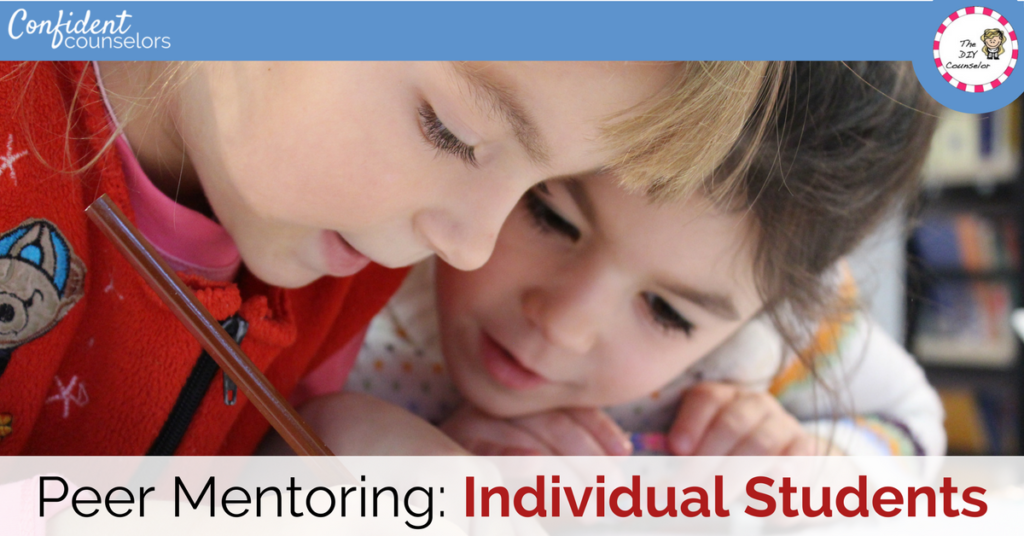
Use mentors to welcome new students as they transition to your school. It helps if each classroom has a designated student mentor. If this isn’t the case, assign a mentor of your choice to walk alongside new students.
Finally, academic tutoring is another way to use mentors in your program to address individual students. Identify the need and match peers based on interest and ability. Get more info about one-to-one cross-age mentoring here.
Peer Mentoring with Small Groups
Small groups are an easy way to use mentors in school counseling. Consider organizing a lunch group for students struggling with social skills. Include peer mentors who are engaging and like to talk. Plan a simple activity, a game or project, and watch the magic happen.
In addition, academic tutoring needs can be met in a mentor-led small group.

Also, peer mentoring in small groups is a great a way to manage a transition program for middle and high school.
Check out Peer Group Connection and The Boomerang Project for information on transition programs. The National Mentoring Resource Center and The National Mentor Partnership provide information on group mentoring.
Work with What You’ve Got
In a word, peer mentoring is overwhelming. You may not have an organized program, yet. But, think about how you use peers already. You may have some structure already in place to set up a peer mentoring program.
 Do you have student ambassadors or a leadership team? If so, this is the perfect place to start, if you aren’t sure where to begin.
Do you have student ambassadors or a leadership team? If so, this is the perfect place to start, if you aren’t sure where to begin.
Remember, every school is unique, and every year is different. There are personal benefits both for the mentors and mentees that are a part of your program. Use your position as a school counselor to develop a distinct peer mentoring program that reflects your school population and meets your needs.
